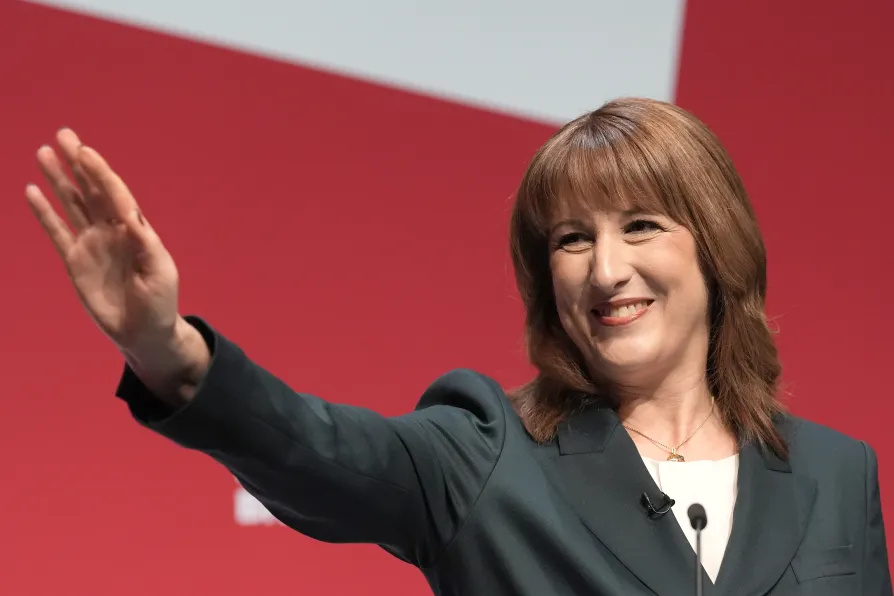
 Chancellor of the Exchequer Rachel Reeves after she gave her keynote speech during the Labour Party Conference at the ACC Liverpool, September 29, 2025
Chancellor of the Exchequer Rachel Reeves after she gave her keynote speech during the Labour Party Conference at the ACC Liverpool, September 29, 2025
LABOUR Party members are clear on what Rachel Reeves’s priorities should be as she prepares to present her Budget next month.
They believe she should protect public services by raising taxes, if needs be, according to a poll by Survation. More than three-quarters of party members back that view, the survey found.
The members are prepared to see the government set aside its manifesto commitment not to raise income tax, National Insurance for workers, or VAT if needs be.
It is not normally good politics to break clear promises made at election time. It only increases cynicism towards politicians, whose public standing is already very low.
But here Labour is in a vice of its own making. The tax pledges it made cover most of the available means of raising government revenue. Yet the party also pledged, as the behest of City interests, to keep borrowing down.
And it has also committed to huge increases in military spending, while also claiming that there would be no return to the austerity imposed by the Tories — with Liberal Democrat connivance — which blighted so many lives and has left scars on our society still deeply felt today.
For Reeves and Keir Starmer, this circle was to be squared by economic growth as a cure-all for budgetary ills. Yet the growth record under this government has been anaemic at best.
That is hardly surprising. Before the election, Starmer dumped his ambitious green investment plans, which were to pump around £28 billion a year into the economy. Only fractions of that amount have emerged.
And there was to be a massive house-building programme. The results have been pitiful.
Reeves’s substitute has been to scrap more and more planning regulations — and with it local democracy — without regard to environmental impact, in order to expedite infrastructure development in particular.
And she has also removed post-2008 restrictions on the City in the hope that this will lead high finance to invest more in Britain. These are classical neoliberal prescriptions.
Reeves has also found a new factor to blame for her failures — Brexit. Hitherto ministers — nearly all of whom were “remainers” in the debate over the European Union — have been ordered to avoid the topic for fear of alienating working-class voters.
Now those restraints appear to be being cast aside. Reeves said leaving the EU had caused “severe and lasting damage” while fellow Blairite Health Secretary Wes Streeting rejoiced that it was now permissible to condemn Brexit again.
Doubtless this is because polling now shows public support for Brexit to be waning as successive governments have failed to make any use of the freedoms leaving the EU has given to follow a radically different economic policy.
Instead they have left Britain trapped in the finance-capital dominated governing tramlines which ensure that the economy works for big business and not the people, regardless of international alliances or arrangements. On this point, it is Reeves and Starmer, not Brexit to blame.
Labour would be unwise to pursue the Brexit argument too far. There is no indication that any great body of opinion actually wants the debate reopened. And people would realise that EU membership would actually obstruct policies the mass of people want, like taking utilities into public ownership.
Far better to focus on how to get the economy going and fund public services properly through taxing the wealthy more. There are some hesitant and ambivalent signs that the government may now be willing to consider this in the Budget.
The labour movement should now be piling on the pressure to ensure that it does. Blame the rich, not Brexit, for Britain’s economic woes.

Rayner’s call for tax rises over cuts falls on deaf ears













